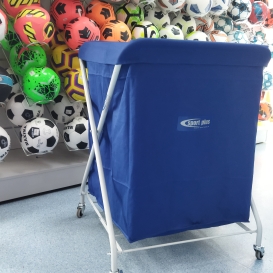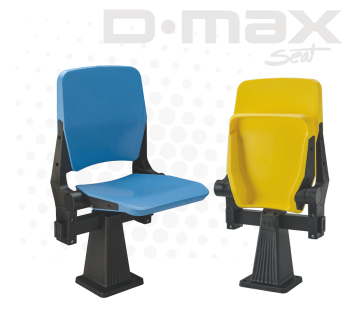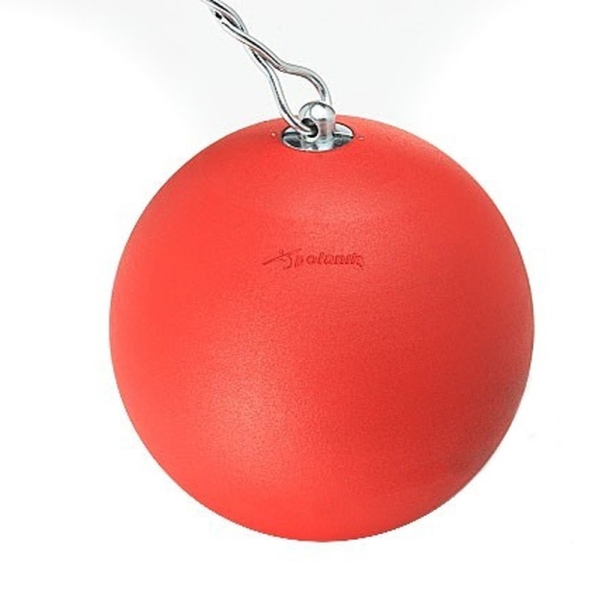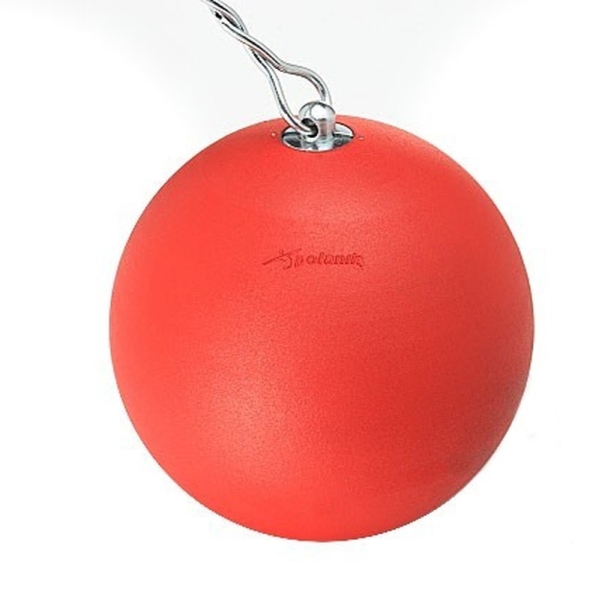Viewed products
-
Sports scoreboard STW 155-30-1
Catalog no: 22-10016
See details7,050.36 PLN Tax inc.5,732.00 PLN Net -
Roman bench for abdominal muscles J-03
Catalog no: J-03
See details707.25 PLN Tax inc.575.00 PLN Net -
Adjustable training disc 1.25-1.75 kg
Catalog no: DA125-S285
See details745.34 PLN Tax inc.605.97 PLN Net -
-
Molten V5M 2000 volleyball (size 5)
Catalog no: 2-20020-5
See details124.00 PLN Tax inc.100.81 PLN Net -
Economic 50 mm Olympic griffin 220 cm + clamps
Catalog no: 80-10291
See details500.00 PLN Tax inc.406.50 PLN Net -
-
Volleyball training post covers square profile...
Catalog no: 2.03.3N
See details799.50 PLN Tax inc.650.00 PLN Net
Training hammers
Training hammers are a key piece of equipment for any athlete specializing in the hammer throw. They are used to sustainably strengthen strength and polish throwing technique. Their excellent balance and varied weight variants - from 1 kg to 12 kg, allow gradual improvement of skills and building of strength. It is a tool to support development in the discipline of hammer throw, to reach full potential and achieve the best results.Build strength, shape technique - learn about training hammers!
More useful information can be found at the bottom of the page.-
Steel training hammer 5.25 kg
486.90 PLN Tax inc.395.85 PLN NetCatalog no: PM-5,25
Availability: Made to order -
Steel training hammer 5.45 kg
489.29 PLN Tax inc.397.80 PLN NetCatalog no: PM-5,45
Availability: Made to order -
Steel training hammer 5.5 kg
491.69 PLN Tax inc.399.75 PLN NetCatalog no: PM-5,5
Availability: Made to order -
Steel training hammer 6 kg
457.19 PLN Tax inc.371.70 PLN NetCatalog no: 12-20044
Availability: Made to order -
Steel training hammer 6.25 kg
506.08 PLN Tax inc.411.45 PLN NetCatalog no: PM-6,25
Availability: Made to order -
Steel training hammer 6.5 kg
515.68 PLN Tax inc.419.25 PLN NetCatalog no: PM-6,5
Availability: Made to order -
Steel training hammer 6.75 kg
520.47 PLN Tax inc.423.15 PLN NetCatalog no: PM-6,75
Availability: Made to order -
Steel training hammer 7 kg
478.96 PLN Tax inc.389.40 PLN NetCatalog no: 12-20064
Availability: Made to order -
Steel training hammer 7.26 kg
504.66 PLN Tax inc.410.29 PLN NetCatalog no: 12-20034
Availability: Made to order -
Steel training hammer 7.5 kg
546.86 PLN Tax inc.444.60 PLN NetCatalog no: PM-7,5
Availability: Made to order -
Steel training hammer 7.75 kg
554.05 PLN Tax inc.450.45 PLN NetCatalog no: PM-7,75
Availability: Made to order -
Steel training hammer 8 kg
515.97 PLN Tax inc.419.49 PLN NetCatalog no: PM-8
Availability: Made to order
Helpful information about training hammers in a nutshell
1 Materials and construction
- Training hammers are advanced sports equipment, designed to the highest technical standards to provide athletes with optimal training conditions. A key element of the hammers' design is their filling, which is a precisely selected mixture of lead and steel shot. This choice of materials is not a coincidence - lead, thanks to its high density, allows for sufficient weight with a relatively small volume, which is key to maintaining the compact size of the hammer head. In turn, the addition of steel shot reinforces the structure of the filling, increasing its durability and resistance to deformation, which could affect the stability of the hammer during throwing.- The hammer's steel head is the basic element of its construction and is made of durable steel, the surface of which has been subjected to a powder coating process that not only gives the head an aesthetically pleasing appearance, but, above all, has a protective function, protecting the steel from corrosion and mechanical damage, such as scratches or impacts that can occur during intensive training. This process involves applying dry powder to the surface of the steel using an electrostatic spray gun, which adheres to the surface of the metal thanks to the application of electrostatic charges, followed by firing in an oven, which gives the structure a uniform and durable coating on the metal surface. Ultimately, this provides long-lasting protection for the metal surface even under harsh operating conditions.
- The bearing, which is an integral part of the hammer, is made of hardened steel, which increases its hardness and resistance to wear. The process of hardening steel involves heating it to a high temperature and then rapidly cooling it, which leads to structural changes in the material, increasing its strength and hardness. In addition, the bearing was subjected to a galvanizing process, which involves coating the surface of the steel with a thin layer of zinc by immersion in an electrolytic solution. Galvanic zinc plating is a manufacturing process that effectively protects the steel from corrosion, while ensuring high aesthetics and smoothness of the bearing surface. The smoothness and precision of rotation directly affect the hammer's trajectory and the athlete's comfort. Thanks to the use of high-quality bearings, the hammer rotates with minimal resistance, which allows the athlete to better control the force and direction of the throw, as well as reduce the risk of injury from uncontrolled movements.
- Each component of the hammer has been carefully designed and manufactured to meet the most demanding expectations of professional athletes, providing them with a tool that not only supports them in their daily training, but also contributes to achieving the best results in the international arena.
2 Weight variants
- This is a key aspect in terms of effective training for athletes at different levels, from beginners to elite athletes. The weight of the hammer plays an important role in the development of both strength and throwing technique, and the proper adjustment of the load to the individual needs of the athlete can significantly affect the development of his skills and the results achieved.- Training hammers are available in a wide range of weights, from lightweight 1 kg versions, designed for younger athletes and beginners, to heavy 12 kg hammers, used by advanced athletes to build maximum strength and throwing technique. Each of these weights has its own specific use and benefits in the training process.
- Light training hammers (1 kg - 2.5 kg): are ideal for learning basic throwing technique. They allow younger athletes and beginners to focus on correct form and precision of movement, without putting undue strain on muscles and joints. This allows athletes to gradually build strength and refine technique, minimizing the risk of injury from improperly executed movements.
- Medium-weight training hammers (3.25 kg - 4 kg): are mainly used by intermediate-level athletes who have already reached a certain level of technical proficiency and are ready for a more demanding load. These hammer weights allow athletes to further improve their technique while they begin to engage their muscular strength more intensively, which is crucial for further athletic development.
- Heavy training hammers (4 kg - 12 kg): are designed for advanced and professional level athletes. Training with these heavy hammers requires not only excellent technique, but also considerable physical strength and endurance. Heavy-load training is crucial for building power, which is essential for achieving maximum distances in the hammer throw. In the case of these hammers, special emphasis is placed on stabilizing the body and precisely controlling the movement in order to effectively convert the generated power into an optimal throw.
- The variety of hammer weights is not only a matter of load selection, but also a strategic element in training planning. By gradually increasing the weight of the hammer, an athlete can systematically develop his or her strength, technique and endurance, which translates into better performance in sports competitions. In addition, the availability of different weights and variants allows coaches to take a more personalized approach to training, tailoring the load and nature of training to the specific needs of each athlete, which is crucial in the pursuit of hammer throw mastery.
3 Training application and benefits
Training hammers play a fundamental role in the preparation of any athlete specializing in the hammer throw, and their appropriate use can significantly affect the development of an athlete's technical, strength and conditioning skills. An important aspect in the context of their use is the ability to fine-tune training parameters, which allows for the systematic and differentiated development of key motor characteristics that are essential for success in this demanding sport.Preparation for competition
- Training hammers is an indispensable part of preparation for competition, where precise adjustment of the training load allows the athlete to reach peak form at the right time. Coaches often use weighted hammers to modulate training intensity depending on the phase of preparation. At the beginning of a training cycle, heavier hammers may dominate to develop strength and build muscle mass. As the athlete gets closer to the start, the weight of the hammers is gradually reduced, allowing the athlete to increase rotational speed and improve technique, while reducing the risk of overtraining. As a result, the athlete enters the competition with maximally developed strength, ready to make the best throws at key moments.
Improving throwing technique
- Hammer throwing technique is extremely complex and requires precise coordination of the work of the entire body, from the feet to the hands. Training hammers, thanks to their varying weights, allows athletes to gradually improve the various technical aspects of the throw. Training with lighter hammers allows athletes to focus on the speed of rotation and the fluidity of movement, which is key to achieving an optimal throwing trajectory. Lighter hammers also allow for more intense training sessions, in which the athlete can repeat the movement multiple times to fully automate the correct movement patterns.
Building strength and endurance
- One of the main goals of training with hammers of different weights is to gradually build muscle strength, which is indispensable for achieving long and efficient movements. Training with heavier hammers allows for the development of explosive strength, which is crucial for dynamic and effective throwing. Heavy hammers engage major muscle groups, including the muscles of the legs, body, shoulders and back, which contributes to the comprehensive development of whole-body strength. The high loads also force the athlete to maintain proper posture and technique, which is essential for stability and precision throughout the throwing motion.
- However, training with hammers is not only about strength - muscular endurance is equally important, especially for prolonged training sessions and competitions, where repeated high-intensity movements are required. Training with lighter hammers, but at a higher intensity (more repetitions, shorter intervals between throws), allows the development of muscular endurance, which is key to maintaining maximum performance throughout the competition.
Injury prevention and rehabilitation
- To top it all off, lighter hammer throws can be used for corrective exercises to help repair improper movement patterns or recover fully from injuries. By gradually increasing the load, muscle strength and flexibility can be safely rebuilt, minimizing the risk of injury recurrence. In this way, training hammers not only promote the development of athletic skills, but also serve an important function in maintaining the health and longevity of an athlete's career.
We encourage you to browse our range of training hammers or contact us so that we can choose the most suitable and adequate equipment to suit your needs.









































